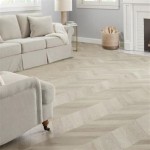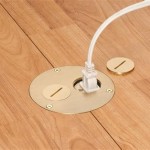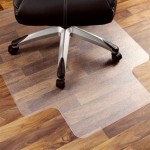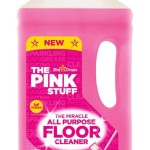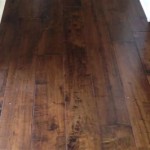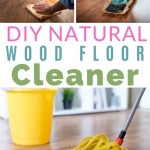The Best Non-Toxic Wood Floor Cleaners: A Guide to Safe and Effective Cleaning
Maintaining the beauty and longevity of your hardwood floors involves regular cleaning. However, many commercially available cleaners contain harsh chemicals that can damage the finish, dull the wood, and even pose health risks, especially for families with children and pets. Fortunately, a wide array of non-toxic options are available, providing a safer and more sustainable approach to floor care. This guide will explore the best non-toxic wood floor cleaners, highlighting their benefits, ingredients, and application techniques.
1. Vinegar-Based Solutions: A Time-Tested Cleaning Powerhouse
Vinegar is a natural cleaning agent that effectively cuts through dirt and grime while disinfecting surfaces. For wood floors, a simple solution of white vinegar and water creates a potent cleaner without the harsh chemicals. To make a vinegar-based wood floor cleaner, combine equal parts white vinegar and water in a spray bottle. Apply the solution to the floor, using a microfiber mop or cloth to scrub gently. Rinse the floor with clean water, allowing it to dry completely.
The acidic nature of vinegar helps to break down dirt and grime, restoring the shine to dull floors. It also effectively removes sticky residue left behind by spills or foot traffic. While vinegar alone can be effective, adding a few drops of essential oil like lemon or tea tree can further enhance its cleaning power and add a pleasant fragrance. However, it's crucial to test the solution on a small, inconspicuous area first to ensure it doesn't affect the wood's finish.
2. Castile Soap: A Gentle and Versatile Cleaning Agent
Castile soap, derived from olive oil, is a natural and biodegradable cleaning agent known for its gentle properties. It excels in cleaning wood floors without stripping away the protective finish. To create a castile soap cleaner, mix a few tablespoons of liquid castile soap with warm water in a spray bottle. Apply the solution to the floor and scrub gently using a microfiber mop or cloth. Rinse thoroughly with clean water, allowing the floor to dry completely.
Castile soap is a versatile cleaner that can be used for various cleaning tasks around the house. For wood floors, it provides a gentle yet effective cleaning solution. Its mild formula is safe for children and pets, making it an ideal choice for families and individuals with sensitive skin. Additionally, castile soap is biodegradable, minimizing its environmental impact.
3. Baking Soda: A Natural Abrasive for Deep Cleaning
Baking soda, a natural abrasive, can be beneficial for deep cleaning wood floors and removing stubborn dirt and stains. However, it's essential to use baking soda sparingly as excessive scrubbing can damage the wood's finish. To create a baking soda paste, combine a tablespoon of baking soda with a small amount of water to form a thick paste. Apply the paste to the affected area, scrub gently using a soft-bristled brush, and then rinse thoroughly with clean water.
Baking soda acts as a mild abrasive to lift dirt and grime from the floor's surface. It can also deodorize the floor by neutralizing unpleasant odors. When using baking soda, it's crucial to avoid scrubbing too hard, as this can scratch the wood. It's also recommended to test the paste on a small, inconspicuous area first to ensure it doesn't damage the finish.
4. Commercial Non-Toxic Wood Floor Cleaners
While creating your own cleaning solutions using vinegar, castile soap, and baking soda can be effective, commercial non-toxic cleaners are also available. These cleaners are specifically formulated for wood floors, ensuring they are safe for the wood's finish and your health. When selecting a commercial non-toxic cleaner, look for products that are biodegradable, plant-based, and free from harsh chemicals, fragrances, and dyes.
Many brands offer a range of non-toxic wood floor cleaners, catering to different requirements, such as cleaning specific types of wood, removing stains, or providing a high-gloss finish. Reading product labels and researching ingredients is crucial to ensure the cleaner is appropriate for your particular needs and preferences.
Tips for Safe and Effective Cleaning
Regardless of the cleaning agent you choose, following these tips can ensure your wood floors remain beautiful and well-maintained:
- Always test the cleaner on a small, inconspicuous area first to ensure it doesn't damage the finish.
- Use a microfiber mop or cloth to minimize scratching.
- Avoid using harsh chemicals, such as bleach or ammonia, as they can damage the wood's finish.
- Apply the cleaning solution sparingly and avoid soaking the floor.
- Rinse the floor thoroughly with clean water to remove any residue.
- Allow the floor to dry completely before walking on it.
- For spills or stains, clean them up immediately to prevent them from setting in.
By following best practices and using effective, non-toxic cleaning solutions, you can maintain the beauty and longevity of your wood floors while ensuring a safe and healthy environment for your family and pets.

Non Toxic Wood Cleaner Vermont Natural Coatings

Best Natural Homemade Floor Cleaner Nature S Nurture

6 Best Hardwood Floor Cleaners 2025 Reviewed

Diy Wood Floor Cleaner Safe Non Toxic Easy And

The Best Natural Cleaners For Wood Floors Flooring Ireland

The 5 Best Hardwood Floor Cleaners On In 2024
The 7 Best Natural Cleaning S

Best Natural Floor Cleaner Wood Hardwood Aspenclean

Diy Hardwood Floor Cleaner Safe Effective Homemade Recipe
The Best Hardwood Floor Cleaners For 2025 Recommended By Experts

